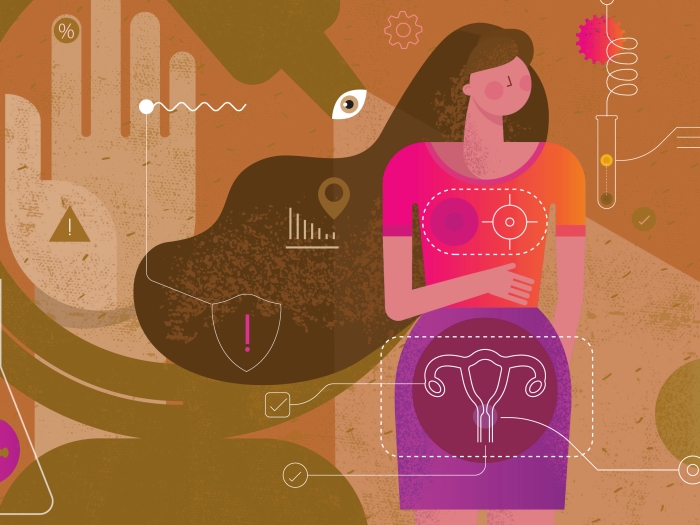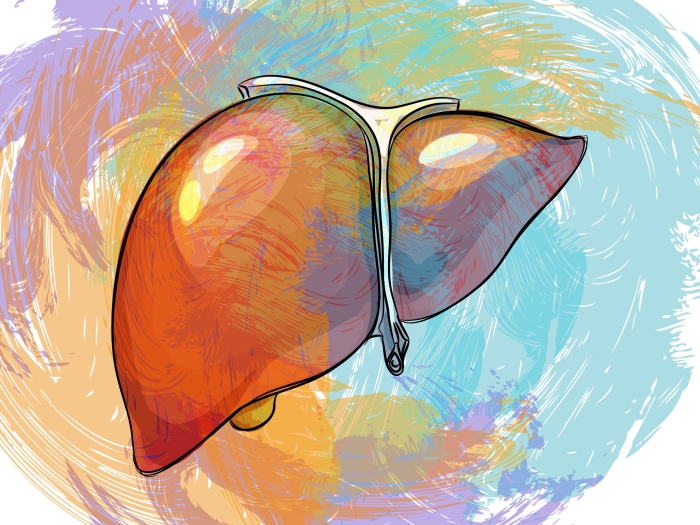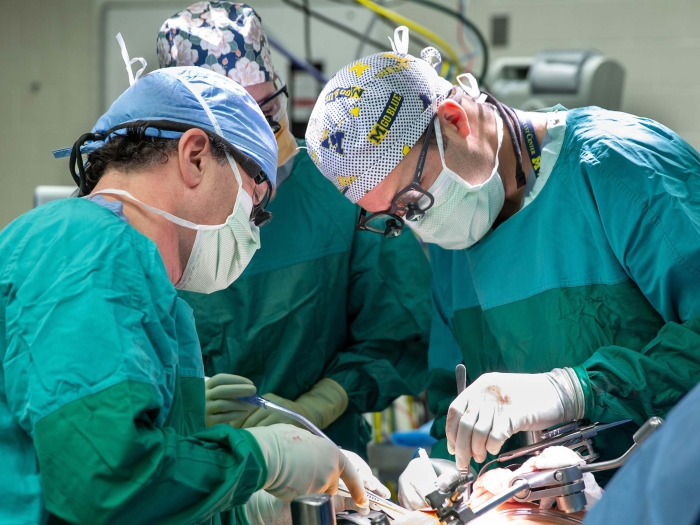Find out what’s truth and what’s fiction when it comes to the causes of liver disease.
1:00 PM
Author |

It's a common liver disease myth: Only alcoholics suffer from cirrhosis, when liver damage leads to scarring.
MORE FROM MICHIGAN: Sign up for our weekly newsletter
But in reality, the causes of liver disease and liver damage are far more varied than hitting a bottle of Jack Daniel's too frequently. And for some people, no action they can take would fend off liver disease.
Beyond the well-known "alcoholic" myth, here are some other misunderstandings Hellan Kwon, M.D., has encountered in her work as a physician and as clinical assistant professor of hepatology at the University of Michigan.
Myth: All causes of liver disease are self-inflicted.
Although it's true that sharing needles with a drug user, eating too many Twinkies or hitting happy hour daily may lead to liver disease, some people can point to their gene pool or sheer unluckiness after a diagnosis.
Abnormal genes inherited from family members cause genetic liver diseases, including Wilson's disease. Others can have an autoimmune disorder such as autoimmune hepatitis, which can lead to liver disease, for instance.
In still other cases, no one cause can be pinpointed.
"Sometimes patients don't even know they have an underlying liver disease, and by the time they do, it's progressed to cirrhosis," Kwon says.
Myth: Water is the only beverage good for the liver.
Water is the magic elixir, according to seemingly every health and beauty magazine, particularly for its ability to wash toxins out of the body. But it isn't the only one to help keep a healthy liver.
"Recently, studies have shown that coffee is good for the liver, and a study from Rotterdam, Netherlands, once again confirms this information," Kwon says. The study in the Journal of Hepatology showed that coffee or herbal tea intake of three or more cups a day lowers the amount of liver scarring. Coffee appears to have a protective effect on the organ.
SEE ALSO: What Does the Liver Do?
But leave the sugar out of the coffee, and concentrate on proper nutrition. Excessive sugar and processed carbohydrates can lead to weight gain, which can contribute to nonalcoholic fatty liver disease (NAFLD), in which fat accumulates in the liver despite limited alcohol ingestion.
Myth: A liver cleanse and supplements keep liver diseases at bay.
"Patients will not benefit from either," Kwon reports. "What is more important is a healthy, well-balanced diet and exercise. These lifestyle changes are especially helpful for NAFLD, where one of the main treatments focuses on nutrition and healthy behaviors. It can reverse some liver damage."
Myth: You can spread hepatitis to others through casual contact.
Several types of hepatitis exist, including those caused by viral hepatitis A, B and C and autoimmune hepatitis.
But not all types of hepatitis are alike. As for hepatitis B, C and autoimmune hepatitis, having casual contact or sharing food and drink will not spread the infections.
"Hepatitis B and C are contagious in more intimate relationships where people might share blood, perhaps using illicit drugs or getting a tattoo with an infected needle, or through sex," Kwon says.
They also can be passed from a mother to a child in utero or at birth.
Myth: Liver disease patients must avoid acetaminophen (Tylenol).
Acetaminophen, when used as directed, is safe for patients who have liver disease, Kwon says. But too much acetaminophen in a short period can cause toxicity and liver failure. "One area that patients need to especially be cautious is when using pain pills that have acetaminophen mixed with a narcotic medication, as you may lose track of how much acetaminophen you are consuming," she says.
To make an appointment with Michigan Medicine's liver clinic, dial 844-233-0433.

Explore a variety of healthcare news & stories by visiting the Health Lab home page for more articles.

Department of Communication at Michigan Medicine
Want top health & research news weekly? Sign up for Health Lab’s newsletters today!





